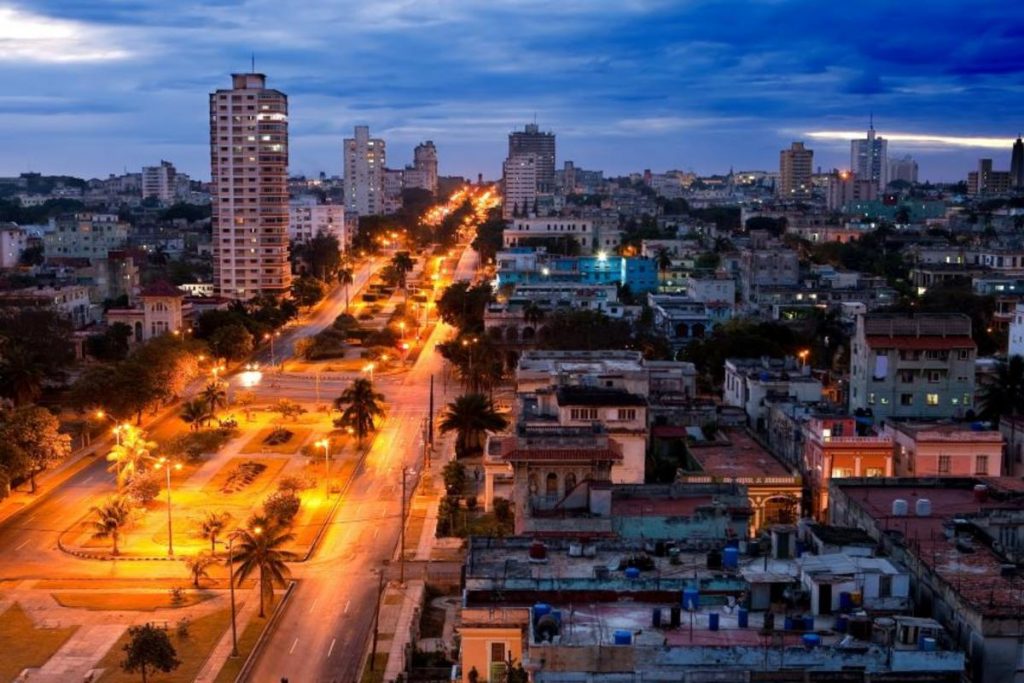Describe your experience with the political system in Cuba? What are elections like? How do local representatives listen and solve concerns in a reasonable amount of time?
My personal experience as a young Cuban woman has been very good with the political system in Cuba. Like every political system it is not perfect but it provides great opportunities. I graduated from college, all for free, all our educational system is for free. We have the right to free health care: free abortion and free contraceptives, which is a benefit that I think few of us have. I also believe that our political system takes care of everyone and leaves no one behind.
The Electoral System, by its nature and essence, is an exponent of Cuban socialist democracy; it allows all citizens with legal capacity who meet the established requirements to intervene in the direction of the State, directly or through their elected representatives to integrate the organs of the Popular Power and to participate for that purpose in the manner provided by law, in elections. The elections are indirect and staggered, they start at the grassroots level, the people elect a regional delegate who would be their representative, this in turn elects the Delegate of the People’s Power and these elect the National Assembly, which elects the President.
In the Committees for the Defense of the Revolution, assemblies are held so that the people can give their complaints, opinions and suggestions. Then the delegates take this information to the Assembly of People’s Power, here they try to solve the problems at the municipal level and if they are very serious situations they are handed over to the relevant entities. At the local level, we try to resolve these complaints as soon as possible, depending on the seriousness of the matter.
What’s your interpretation of Western media as opposed to Cuban media? How does Cuban media represent what the working class want to see?
The US media struggle against Cuba is very strong. This government takes advantage of the problems of the Cubans that they themselves have provoked and creates campaigns and false news to destabilise the country. They also support US-based Cuban influencers who want to increase hatred and provoke a social explosion.
All state and governmental sectors and institutions in Cuba have social networks, which keep workers and the population in general informed and refute all US slander.
What was your experience like in the educational system? What were your favorite experiences and topics to learn about? Were the knowledge and skills you gained adequate for living in Cuban society?
My experience in the educational system was very good. The teachers are excellent and all the educational materials are free and for everyone equally. I was able to apply to college, to the career I wanted and I got my degree and now I am working in what I like to do.
I have always been interested in mathematics, languages and the history of Cuba, which we have been learning since we were children and which we continue to study in depth at the university.
My favorite experience was the country school where we were interned for 15 days and worked in the fields to help with the country’s production.
Yes, at school you are taught and educated in values to be a useful and responsible human being capable of living in society.
Describe your career. What was the process of getting a job? What is it like working for democratic cooperatives? Have you ever changed jobs? What is the process of changing jobs like in a country where employment is guaranteed?
I am a specialist in Russian language, I learned not only the language but also everything related to this culture. When you graduate, the same university offers you a job, where they teach you and introduce you to the working life. I have not changed jobs.
Your current job may give you another job offer to improve your skills. You should always wait for job offers, which most of the time are for promotion.
Can you describe how the government has directly impacted your life? What was the cause? What was the result?
The government has positively impacted my life through education and healthcare that is free to all. This gives you the opportunity to study and improve yourself professionally. Whatever complaints we have had as a society, the government has tried to resolve them as soon as possible. For example, people in my community have complained about the quality of the bread and this problem was solved immediately.
What more can trade unionists and communists from abroad do to help the Cuban people? In what ways are trade union trips like this useful to the Cuban people, in your opinion, and how could they be improved?
Trade unionists and communists can help by making donations for schools, hospitals, social aid centres, volunteer work, helping small municipal projects for the development of these regions, promoting the reality of Cuba in their countries so that everyone knows what the Cuban people are going through and how it overlaps with their problems.
These trips help the Cuban people by sending donations that provide supplies to hospitals and schools. Also the political and ideological support is very great since we know that there are people from other countries who believe in the Cuban revolution and want to help and support the Cuban people.
It would be great if more people came every year, who know our reality and support us in building a better society, free of United States sanctions.



